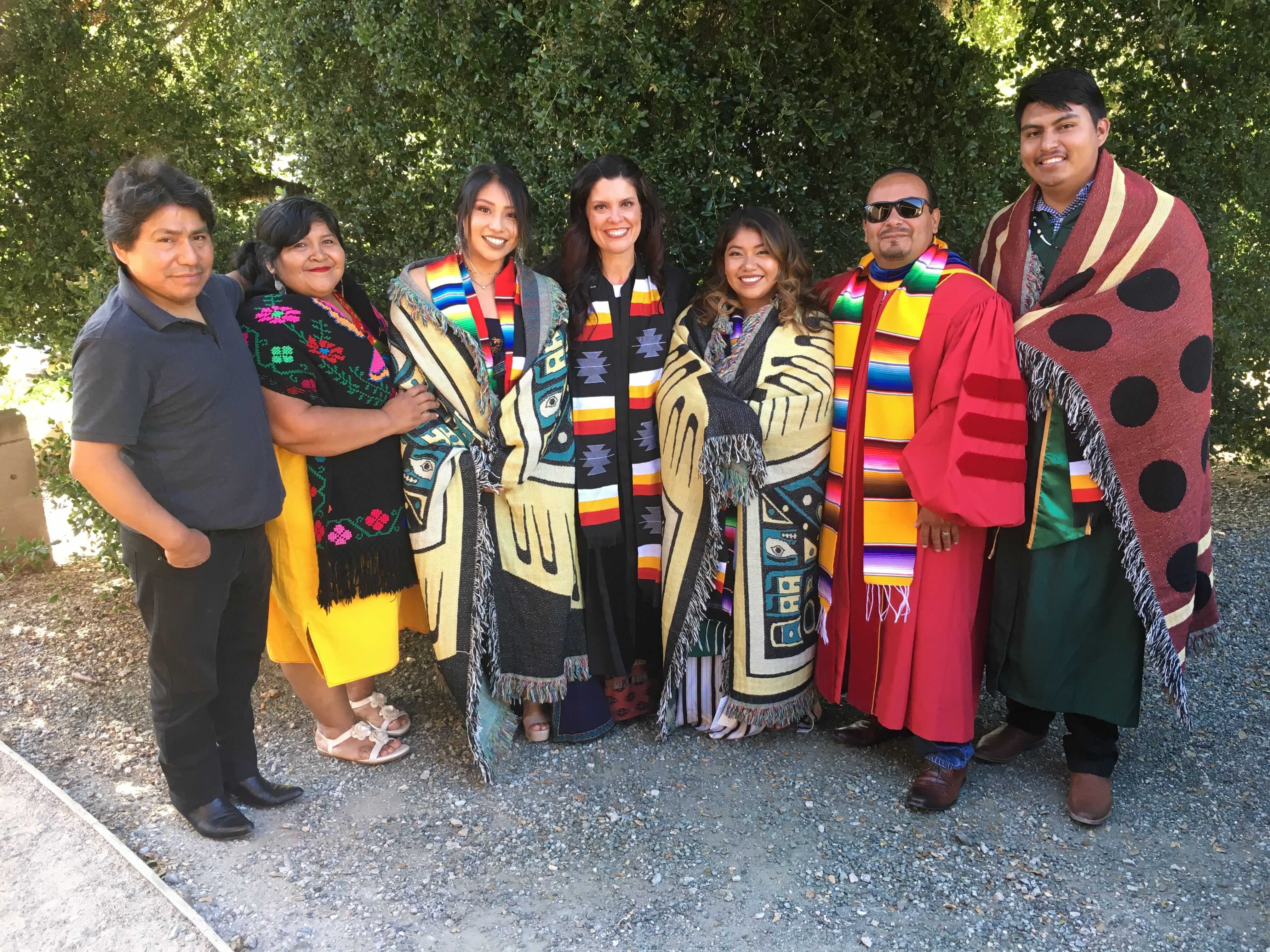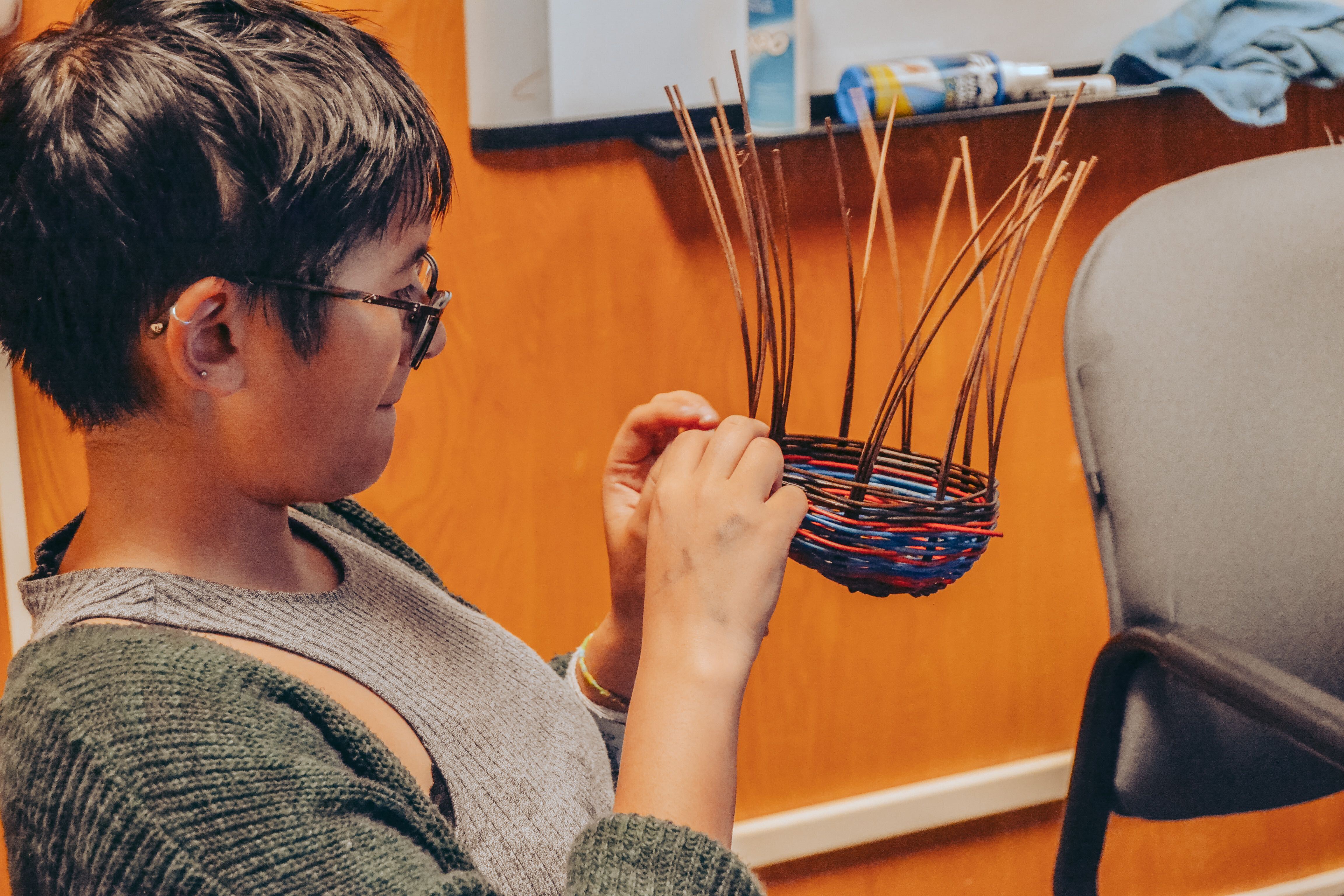
The Native American and Indigenous Cultural Center acknowledges that the Cal Poly campus is situated on unceded land, included in unratified Treaty “C” region, signed at Camp Burton on June 3, 1851. We recognize yak titʸu titʸu yak tiłhini Northern Chumash Tribe of San Luis Obispo County and Region, their continuing connection to land, water, and community, and yak titʸu titʸu yak tiłhini elder's past, present, and emerging.
The Native American and Indigenous Cultural Center seeks to embrace and encourage students to (re)connect to the traditions and cultures of Native American and Indigenous peoples. The center aims to ensure student success by holistically supporting them and providing services rooted in de-colonial practices, community engagement, restorative healing, and native knowledge. NAICC’s vision is to create and sustain an environment in which Native and Indigenous students thrive and contribute to the university efforts to recruit, retain, and graduate Native and Indigenous students.
As an intertribal space, the NAICC will foster partnerships with the American Indian Student Association, the American Indian Science & Engineering Society, American Indian and Indigenous Faculty and Staff Association, University Housing, Academic Affairs, and the yak titʸu titʸu yak tiłhini Northern Chumash Tribe, and other local and statewide tribes.
Collaborations, Programs, and Services

- Community Gathering Space
- Mentorship Opportunities
- Academic Support
- Indigenous Peoples' Day Celebration
- Native and Indigenous Heritage Month Programming
- Beading Workshops
- Native & Indigenous Speaker Series
- Decolonial Healing Workshops
- Native & Indigenous Dialogues & Book Circles
- Native & Indigenous Art & Dance
- Native & Indigenous Film Series
- Native & Indigenous Commencement
All students, regardless of race, ethnicity, gender, sexual orientation, or national origin, who are interested in the program’s mission and focus are welcome to help and can partner and participate. We celebrate the diverse cultural identities and experiences of all students and foster a welcoming and inclusive community space. Our work is rooted in respect, equity, and advocacy. We organize culturally affirming events and education, to empower students from all backgrounds.
|
Find us at yakʔitʸutʸu, Building 172, Room H1-46, next to the post office!